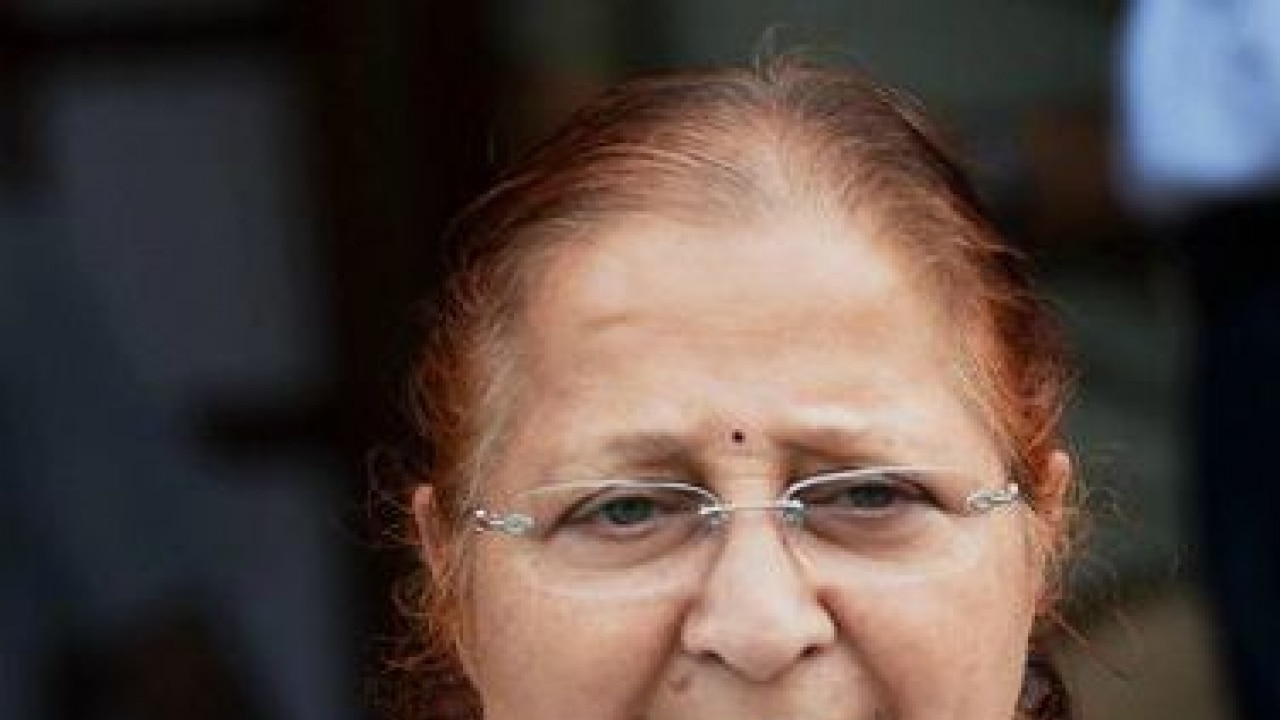
In a rare move, Lok Sabha Speaker Sumitra Mahajan, on Monday, suspended 25 MPs of the Congress for walking into the Well of the House with placards. The members have been suspended for five days. This is the first time that a large number of MPs have been suspended at one go. This came at the end of a fortnight of protests and stalling of proceedings in Parliament. During the NDA-I years, then Lok Speaker Balyogi had convened an all-party meeting, and it was agreed that no member should go into the Well of the House or raise slogans, and that if any one did so, he or she should be suspended. Unfortunately, presiding officers have not managed to implement this code of conduct because it is not the members who behave in an errant manner, but parties as a whole. It seems that Mahajan has now decided to act against errant MPs.
The Congress had been sticking to its refrain of “no discussion without resignation” in response to the controversy arising from Minister for External Affairs Sushma Swaraj’s decision to facilitate former Indian Premier League (IPL) commissioner Lalit Modi’s travel to Portugal. Modi is facing multiples charges of financial embezzlement. Swaraj did not deny that she had put in a word to help Modi. But neither she nor the Government believe her to be guilty of having breached any existing laws. The Congress however is not willing to buy that argument.
There are two issues thrown up by the controversy which are now being fought out on the floor of the House. The first is whether Swaraj had indulged in impropriety in speaking on behalf of Modi; the argument against her is that she facilitated Modi’s travel not as a private citizen but in her capacity as the Minister for External Affairs. It is an issue that needs to be debated, and the government has expressed its willingness to do so, but the Opposition is refusing to relent.
The second issue relates to the disruption of proceedings in the two Houses. The larger question has to do with the justifiability of stalling tactics that MPs can adopt over a prolonged period of time. Is the Opposition right in indulging in slogan-shouting and gutting the functioning of Parliament? Parties, regardless of ideology and politics, have been indiscriminate in leveraging these obstructionist tactics to paralyse Parliament and government legislation.
Ironically, it was Swaraj in her tenure as Opposition leader during the UPA regime, who had upheld boycott as a legitimate democratic weapon for the opposition in Parliament. She argued her viewpoint during the time the BJP was leading protests in the two Houses over the 2G spectrum allocation scam in Winter Session of 2010, demanding the resignation of then telecommunication minister A Raja.
Justifiable or not, obstruction of Parliament — especially over a long period of time — is unjustifiable. Is the disruptive tactic peculiar to the Indian legislature; do similar legislative practices exist in other liberal democracies in the world?
The Indian parliamentary model is based on what has come to be known as the Westminster model — that is British parliamentary traditions. No doubt, heckling, or more accurately jeering, takes place in the House of Commons as well as in the House of Lords. But there is rarely a case of members walking into the Well of the House — the area in front of the Speaker’s podium in Lok Sabha, and that of the Chairman in Rajya Sabha — and raising slogans, even waving placards. In light of the legislative traditions of British Parliament — considered the Mother of Parliaments — the Indian norm of disrupting the proceedings of the House would be considered as a vulgar practice. Protest in the form of disrupting Parliament is not witnessed in any other legislature of Western democracies. There have been instances of Turkish members of parliament or those of Belarus or Ukraine coming to blows. But then Turkey, Belarus and Ukraine are not considered models of parliamentary democracy.
Indian parliamentarians surely cannot take pride in the fact that they have substantively contributed to building such a tradition of disruptive parliamentary practice in the world.